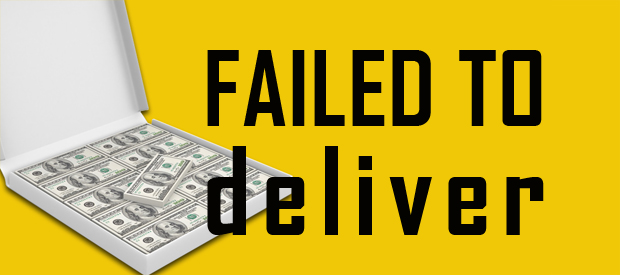Franchise 101: Liquidated Damages in 30 Minutes or Less; and The Price is Right: What Payments Establish a Franchise Relationship?

Franchisor 101: Liquidated Damages in 30 Minutes or Less
A Michigan district court held a franchisee breached its obligations under its franchise agreements and upheld the liquidated damages clause in the agreements.
Little Caesar Enterprises, Inc. (LCE) entered into franchise agreements for two franchise locations with franchisee, S&S. Pursuant to the franchise agreements, S&S was required to prepare and preserve accurate books and records for at least four years, provide weekly reports of gross sales and quarterly financial statements, and timely pay royalties and advertising fees, among other requirements.
S&S failed to submit required financial statements in 2017 and 2019. After repeated default notices, LCE terminated the franchise agreements. S&S also ceased operation and abandoned one of the locations without approval from LCE after which LCE sent S&S a supplemental notice of default and termination. LCE filed suit for breach of contract, trademark and trade dress infringement, among other claims, seeking liquidated damages and attorneys’ fees for the breaches.
LCE moved for summary judgment on its breach of contract claim. Although breach of contract is a highly factual question, it may be resolved by summary judgment if a plaintiff is able to show that there are no disputed issues as to the validity of the contract, the contractual terms are clear, and there are sufficient factual allegations to demonstrate breach of those terms. The court noted there was no dispute the franchise agreements were valid and their terms were clear and unambiguous. The court also found S&S continued to breach the agreements after the lawsuit was filed.
The court then analyzed whether the liquidated damages provision was enforceable. Generally, liquidated damages are appropriate where the damages would be uncertain or difficult to ascertain at the time of entering into the contract. In support of its liquidated damages provision, LCE submitted an affidavit relating to the calculation of the liquidated damages clause. The court found there was a reasonable basis from which to calculate the damages. Similar to its analysis on liquidated damages, the court held that attorneys’ fees were reasonably calculated. Provisions for liquidated damages and attorneys’ fees in franchise agreements are likely to be upheld if franchisors can demonstrate reasonable basis for the calculation of damages and show that the calculation is not a penalty, but a reasonable estimate of the franchisor’s losses upon termination. Franchisors should consult with franchise counsel to assess whether a liquidated damages clause is likely to be found enforceable prior to invoking the provision upon termination of the franchise agreement.

Franchisee 101: The Price is Right – What Payments Establish a Franchise Relationship?
A Massachusetts district court granted a product supplier’s motion to dismiss a distributor’s counterclaims that the supplier violated state franchise sales and consumer protection laws. The court found the distributor did not establish a franchise relationship existed.
Cognex Corporation granted Air Hydro LLC the right to sell Cognex’s products within a specified territory in a distribution agreement. After Cognex informed Air Hydro that it would not renew the agreement, the parties filed lawsuits against each other in Florida and Massachusetts district courts. Air Hydro, the defendant in the Massachusetts case, brought counterclaims alleging Cognex unlawfully sold Air Hydro a franchise in violation of Florida and Indiana’s franchise sales and consumer protection laws.
A franchise relationship exists where the franchisee obtains the right to operate a business offering or selling the franchisor’s goods or services under the franchisor’s trademarks, the franchisor exerts significant authority in and provides assistance with the business operations, and the franchisee agrees to make required payments to the franchisor for the right to operate the business.
Cognex argued there was no franchise relationship because Air Hydro did not make payments for the right to operate the business. Air Hydro argued it made required payments because it purchased Cognex’s demonstration equipment, paid software licensing fees, hired and trained employees to distribute Cognex products, and incurred costs in building demonstration facilities.
The district court found none of Air Hydro’s arguments persuasive because none of the purchases or payments were required. The court found Cognex merely recommended that Air Hydro purchase and maintain demonstration products and reserved the right to remove standard discounts if demonstration equipment was not purchased. The court found Cognex’s recommendation was a discount incentive, not a condition for obtaining a franchise. Similarly, fees for the licensing software were not expressly required in the agreement. Finally, the court was unconvinced that hiring and training employees, although Cognex conducted some of the training, and Air Hydro’s costs to build demonstration facilities were required by Cognex. Rather, the court found that these were ordinary business expenses to further Air Hydro’s business goals, not a fee for the right to operate.
Whether a payment is considered a required or indirect franchise fee can be a fact-intensive inquiry that goes beyond the plain words of the agreement. For example, a business that cannot feasibly be operated without paying for sales kits, instruction sets or other non-incidental expenses that reflect the dealer’s investment in the business could be deemed a franchise fee, even if the agreement said there was none. Parties looking to avoid the requirements of federal and/or state franchise laws are well-served having franchise counsel review and structure the arrangement to minimize risk of claims that the distribution, dealer or license agreement, however named, meets all elements of a franchise.
Cognex Corp. v. Air Hydro Power, LLC, No. 22-10051-NMG (D. Mass. Sept. 8, 2023)